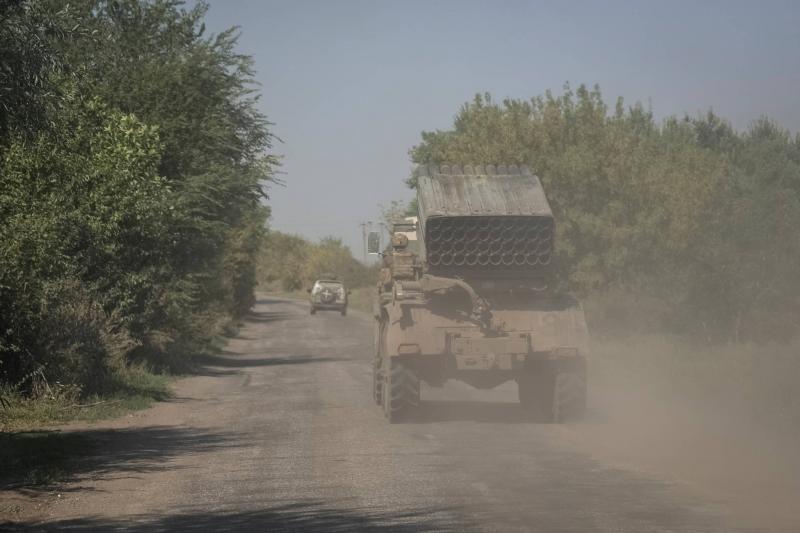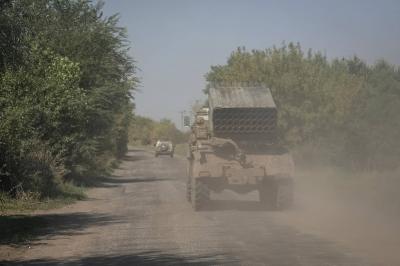Ukraine has requested critics of the pace of its ongoing counteroffensive, which has lasted three months, to "be quiet," marking the clearest indication yet of Kyiv's displeasure with leaked statements from Western officials suggesting that its forces are progressing too slowly. Ukrainian Foreign Minister Dmytro Kuleba told reporters yesterday, Thursday, that "criticizing the slow pace of the counteroffensive means... spitting in the face of the Ukrainian soldier who risks his life every day, advancing and liberating kilometer by kilometer of Ukrainian territory." He also advised critics during an EU foreign ministers' meeting in Spain, "I recommend all critics to be silent and come to Ukraine to try to liberate even a square centimeter themselves."
NATO Secretary-General Jens Stoltenberg confirmed to CNN that Ukrainian leaders are trustworthy. He added, "Ukrainians have exceeded expectations repeatedly. We have to trust them. We advise, assist, and support. But... it is the Ukrainians who must make these decisions." Since Ukraine launched a counteroffensive using Western military equipment worth billions of dollars, it has restored control over more than a dozen villages but has yet to breach the main Russian defenses.
Reports from The New York Times, The Washington Post, and other news outlets last week quoted American and Western officials saying that the attack has not lived up to expectations. Some criticized Kyiv's strategy, accusing it of focusing its forces in the wrong places. Moscow claims that the Ukrainian offensive has already failed. Ukrainian leaders state that they are intentionally moving slowly to weaken Russian defenses and supply lines, thereby minimizing casualties before launching a full-scale attack.
After months of navigating through dense minefields, Ukrainian forces recently reached the main Russian defensive lines in the days following their capture of the village of Robotyne last week in the Zaporizhzhia region of western Ukraine. Forces are now advancing between the nearby villages of Novobokrobyvka and Verbove, seeking a way to flank the anti-tank trenches and rows of concrete pyramids known as "dragon's teeth," which form the main Russian fortifications visible from space.
Ukrainian Deputy Defense Minister Hanna Maliar reported that Ukrainian forces achieved successes near Novobokrobyvka and are advancing near Bakhmut in the east, the only city controlled by Russia during its earlier offensive this year. She noted that fierce battles are ongoing in villages south of the city. Ukrainian Ground Forces Commander Oleksandr Syrskiy spoke of "positive movements" near Bakhmut.
Ukrainine has also intensified drone attacks on targets deep within Russia and in areas controlled by Moscow in Ukraine. The Russian Defense Ministry reported that it destroyed another Ukrainian drone over the Bryansk region in southern Russia. The governor of the western Russian region of Pskov, Mikhail Vedernikov, announced late Thursday that Russian air defense units "neutralized an unidentified object." The night before, Moscow reported attempts by Ukraine to launch drone strikes in six Russian regions, one of which resulted in a massive fire at a military air base in Pskov, damaging several large military transport aircraft on the runway.
Ukraine seldom comments directly on specific attacks within Russia, but President Volodymyr Zelensky appeared to boast about the Pskov strike on Thursday. He said in his evening video address, "The results of our weapons, new Ukrainian weapons, are at a distance of 700 kilometers." Generally, Ukraine's Western allies prevent Kyiv from using the weapons they provide for attacking Russian territory, but they state that Ukraine has the right to target military objectives with its own weapons.




